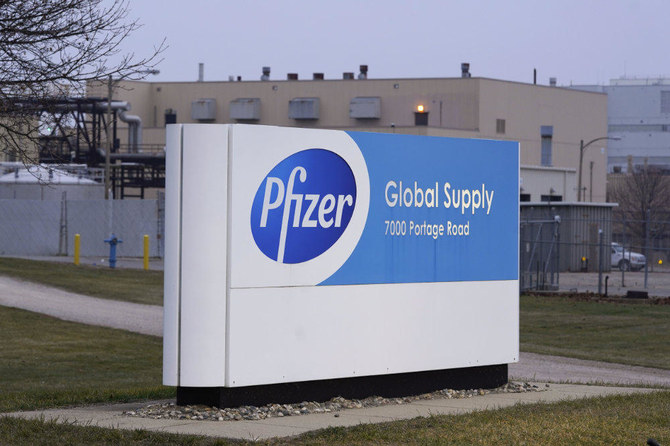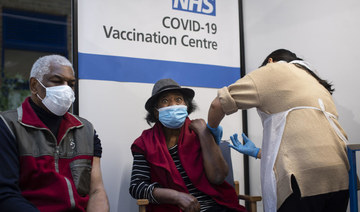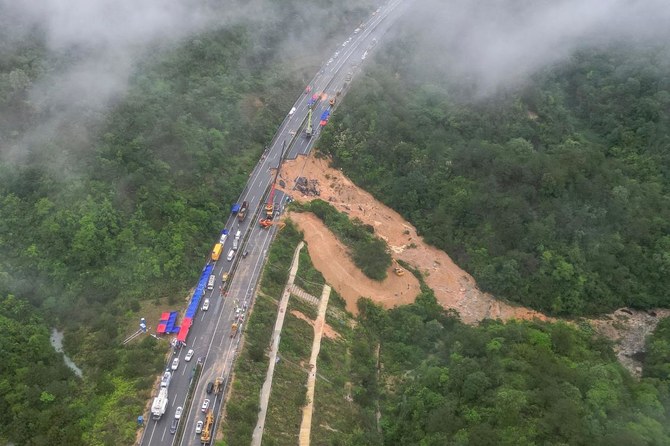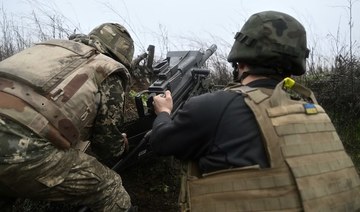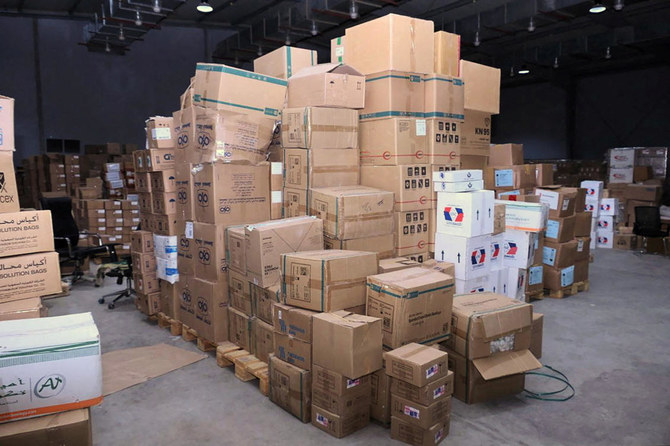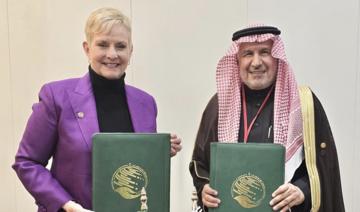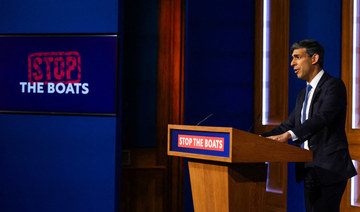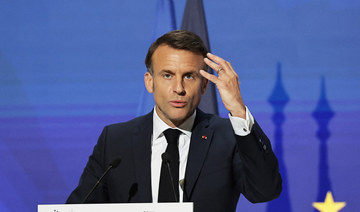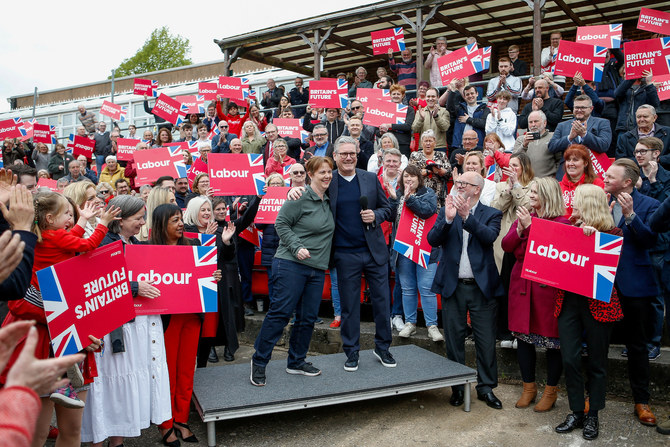WASHINGTON/PARIS: The US Food and Drug Administration said it authorized the use of Pfizer Inc’s COVID-19 vaccine on Friday, with the first inoculations expected within days, marking a turning point in the United States where the pandemic has killed more than 295,000 people.
The US Food and Drug Administration granted an emergency use authorization for the vaccine, developed with German partner BioNTech, which was shown to be 95% effective in preventing the disease in a late-stage trial.
The FDA said the vaccine can be given to people aged 16 and older. Healthcare workers and elderly people in long-term care facilities are expected to be the main recipients of a first round of 2.9 million doses.
“The first vaccine will be administered in less than 24 hours,” US President Donald Trump said in a video posted on Twitter. “I am proud to say we have made sure this vaccine will be free for all Americans.”
The US government has said it will begin distributing the vaccine around the country immediately after FDA authorization and that the first inoculations would happen early next week.
Millions of Americans could begin getting vaccinated this month, especially if a second vaccine from Moderna Inc. is quickly approved.
The Pfizer/BioNTech vaccine was first approved in Britain earlier this month, and UK residents began receiving the shots on Tuesday. Canada also authorized the vaccine and expects to start inoculations next week.
Mexico and Bahrain have also approved the vaccine.
The FDA authorization, known as an EUA, comes at a time when infections, hospitalizations and deaths are soaring to record levels in the United States, which has failed to mount a coordinated effort to slow the spread of the virus. Earlier this week, the one-day COVID-19 death total topped 3,000, while hospital intensive care units across the country are nearing capacity, threatening to overwhelm health care systems.
“The EUA was anticipated and it is one step in a sequence of steps that will bring this pandemic to an end,” said Amesh Adalja, a senior scholar at the Johns Hopkins Center for Health Security.
“I’m not going to feel that there is an EUA tomorrow when I’m taking care of COVID-19 patients. A lot of people will be infected, a lot will be hospitalized and a lot will die before the vaccine is able to have a meaningful impact on spread,” he added.
Others with vaccines in advanced development include Moderna, which could win emergency US authorization as soon as next week, AstraZeneca Plc with Oxford University, and Johnson & Johnson.
BioNTech began developing the vaccine in January, using a technology called synthetic messenger RNA (mRNA) that had yet to produce an approved product. The technology uses a chemical messenger to instruct cells to make proteins that mimic part of the new coronavirus, which the immune system learns to recognize as an invader. BioNTech struck a development deal with Pfizer in March.
The vaccine comes with complex distribution challenges as it must be shipped and stored at -70 Celsius (-94 F), requiring specialized ultra-cold freezers or supplies of dry ice.
Moderna’s vaccine employs the same technology but does not need to be stored at sub-Arctic temperatures.
The first shots
Pfizer has developed a special shipping container that will be filled with dry ice to keep the vaccine from spoiling. Many states are concerned about whether there is enough dry ice for shipments to rural areas that lack the specialized freezers, but Pfizer believes there should be sufficient supply.
The US quest for a vaccine has been the central response to the pandemic from a Trump administration that has mostly otherwise left states to fend for themselves. It has said it will have enough to supply all of the 330 million US residents who wish to be vaccinated by the middle of 2021.
The government has ordered 100 million doses of the Pfizer vaccine — enough to inoculate 50 million people — through its Operation Warp Speed virus development program and could negotiate for more. The status of those talks are unclear.
Pfizer board member and former FDA commissioner Scott Gottlieb said in an interview with CNBC earlier this week that the company had offered to sell the United States more doses as recently as last month but had been turned down.
The United States has agreed to buy 200 million doses of Moderna’s two-dose vaccine. The government also has supply deals with J&J and AstraZeneca, but authorization of those vaccines are not imminent.
Top US infectious diseases expert Dr. Anthony Fauci said if distribution goes well and enough Americans agree to get vaccinated, relief for a pandemic weary nation may be on the horizon.
“If we do it efficiently enough by the second quarter of 2021, and by the end of summer or end of third quarter, we may actually have enough herd immunity protecting our society,” he said. “And as we get to the end of 2021, we could approach very much some degree of normality that is close to where we were before.”
Two vaccines hit snags
Two vaccine candidates, meanwhile, stumbled Friday in the race among researchers to combat Covid-19, a setback for the global immunization effort.
The mixed news on the vaccine front comes as infections accelerated fast in North America and parts of Africa but started to stabilize in Europe and drop in Asia and the Middle East.
Around the world more than 1.58 million lives have been lost to Covid-19 since it emerged in China a year ago, according to an AFP tally from official sources.
While the record-fast development of vaccine options has brought hope to the planet, some candidates are suffering setbacks.
France’s Sanofi and Britain’s GSK said on Friday their vaccine would not be ready until the end of 2021.
New results showed a low immune response in older adults, researchers said.
And in Australia, the development of a vaccine in phase one trials at The University of Queensland was abandoned Friday after clinical trials produced a false positive HIV result among subjects involved in early-stage testing.
Yet inoculation plans with other vaccines are picking up pace.
President-elect Joe Biden hailed the “bright light in a needlessly dark time” in the US, which is home to the world’s highest death toll at nearly 300,000.
The country hopes to start vaccinating 20 million people this month, starting with long-term care facility residents and health workers.
Britain this week became the first Western country to roll out the Pfizer-BioNTech jab, which Canada, Bahrain and Saudi Arabia have also approved.
The first vaccine shipments to 14 sites across Canada are scheduled to arrive Monday with people receiving shots a day or two later.
“I’m really excited. I want to get vaccinated as soon as possible, because I have a new baby,” Michelle, a Toronto resident, told AFP.
Israel, which accepted its first shipment of the Pfizer vaccine on Wednesday, is targeting a rollout on December 27.
And Hong Kong said Friday it had struck deals for two vaccines — one from Pfizer and the other from Beijing-based Sinovac — with plans to launch a campaign in early 2021.
A new combined approach is also being tested by AstraZeneca, whose Russian operation said it would mix its shot with the locally-made Sputnik V vaccine in clinical trials.
“Combinations of different Covid-19 vaccines may be an important step in generating wider protection through a stronger immune response and better accessibility,” the pharma giant said in its statement.
Russia and China have already begun inoculation efforts with domestically produced vaccines that have seen less rigorous vetting, while EU countries are eagerly awaiting clearance on two options.
The EU’s watchdog said it would deliver decisions on the Pfizer and Moderna vaccines in late December and early January respectively.
Yet many lingering questions about the vaccines remain.
Key issues include whether more side effects will emerge with longer follow-up, how long the vaccine remains effective, whether it will limit transmission and how it will work in children, pregnant women, and immunocompromised patients.
More lockdowns in Europe
As Europe’s surge eases off slightly, France is planning to lift a six-week-long lockdown from Tuesday but impose a curfew from 8 pm, including on New Year’s Eve.
Greece also announced new plans Friday to slash quarantine time for incoming travelers and reopen churches for Christmas, while some small shops such as hair salons and bookstores can open for business from Monday.
But Switzerland, which is seeing a sharp resurgence in cases, announced a 7 p.m. curfew for shops, restaurants and bars.
“Our hospitals and our health workers are being stretched to the limit. We couldn’t wait any longer,” President Simonetta Sommaruga told a news conference in the capital Bern.
While lockdowns have brought economic pain, boredom and myriad other woes, the effect on the environment has been more positive.
Carbon emissions fell a record seven percent in 2020 as countries imposed lockdowns, according to the Global Carbon Project.
The biggest drops were recorded in the US, down 12 percent, and the European Union, down 11 percent.
And in the sporting world, Formula One world champion Lewis Hamilton was given the green light to return to racing at the season-ending Abu Dhabi Grand Prix after recovering from his own bout with the virus.




